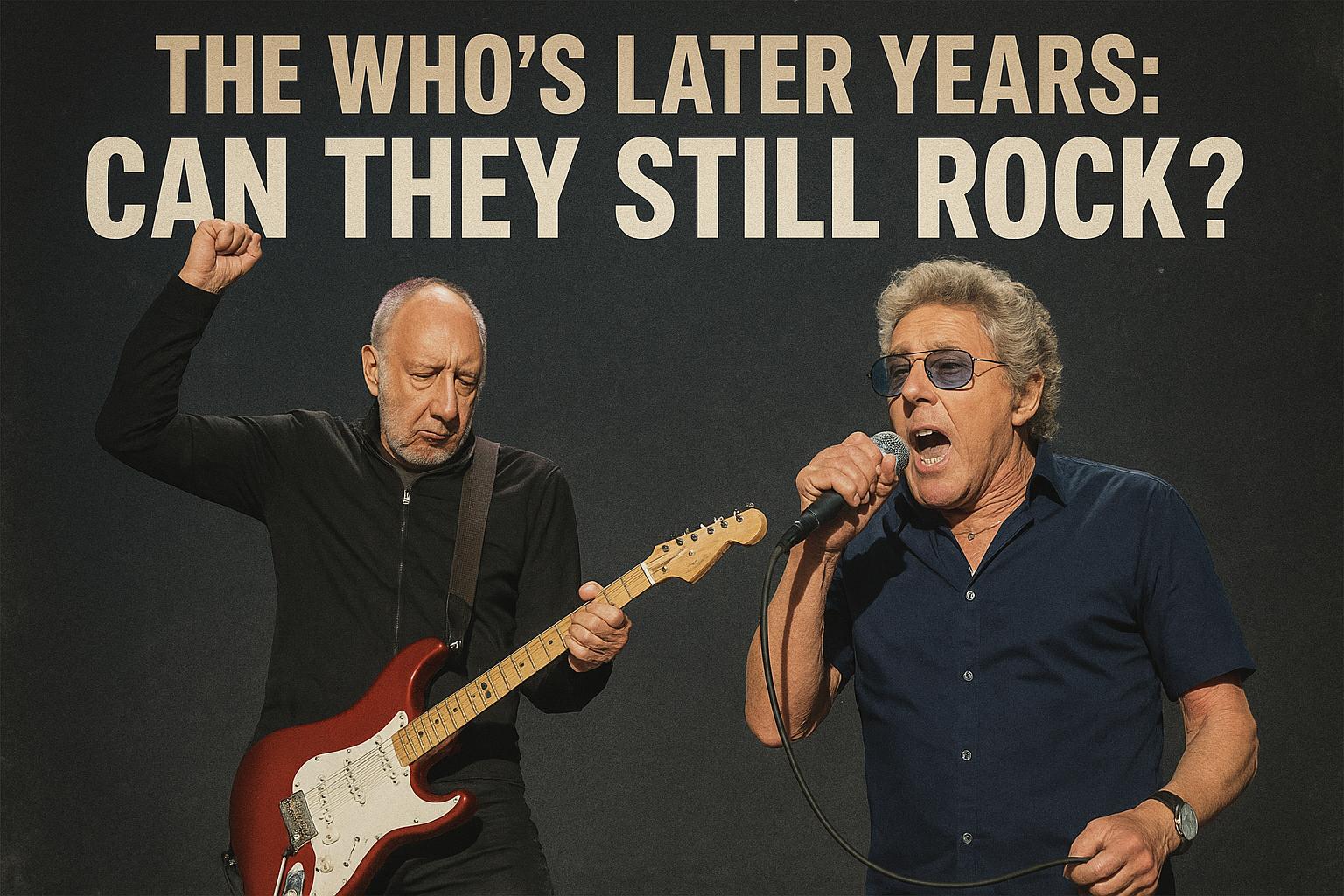The Who’s Legacy and Continued Influence
In the world of rock music, few bands have had the enduring impact of The Who. First formed in 1964, The Who quickly established themselves as one of the most influential bands of their time. With a career spanning over five decades, the question arises: can these rock legends still deliver the electrifying performances they are known for?
Touring in Recent Years
The Who has continued to tour and perform live, showcasing their music to both long-time fans and new audiences. Their most recent major tour, the “Moving On!” tour, kicked off in 2019. This tour exemplified their dedication to live performance and was marked by a blend of their classic hits and orchestral interpretations. Despite being in their later years, surviving members Pete Townshend and Roger Daltrey have displayed remarkable energy and enthusiasm on stage.
The “Moving On!” tour was notable not only for its music but also for its unique fusion of rock and orchestral arrangements. By integrating orchestration, The Who provided a richer, more layered sound that showcased their timeless compositions in a new light. These performances were held across a variety of locations, ranging from classic rock venues to grand concert halls, each tailored to deliver both intimacy and grandeur in musicianship.
In each city, the concerts were met with enthusiastic applause, demonstrating that even after decades, The Who’s music remains relevant. Their ability to draw in large crowds across the globe speaks to their lasting legacy and the universal appeal of their music. In addition, each performance not only connected the audience with hit songs such as “Baba O’Riley” and “Who Are You,” but also invited them into a communal experience where music bridges generations and backgrounds.
Recent Releases and New Projects
In addition to their live performances, The Who has continued to release new material. Their 2019 album, simply titled WHO, was their first studio album in over a decade and was well received by critics and fans alike. The album featured a mix of classic rock sonorities with contemporary themes and demonstrated that Townshend and Daltrey still have a passion for creating music that resonates with a modern audience.
WHO became a testament to their adaptability, addressing themes relevant to contemporary life while retaining the dynamic sound that is characteristic of The Who. Tracks such as “Ball and Chain” and “All This Music Must Fade” highlight their continued critique of social issues and introspective reflection—a signature of their songwriting across the decades.
Moreover, The Who engage actively in creative projects beyond music. In an interview with Pete Townshend, he mentioned his commitment to pushing The Who’s music forward, while respecting the band’s rich history. This approach highlights their willingness to evolve rather than solely rely on past successes. Future projects may encompass collaborations with other artists, further expanding their influence and introducing their music to newer audiences.
The Impact of Age on Performance
As artists age, questions about their physical ability to perform arise. In the case of The Who, age has not been a significant barrier. Both Townshend and Daltrey have adapted their performances to accommodate their changing abilities, without compromising the essence of their music. Daltrey’s voice remains powerful, albeit with some signs of aging, and Townshend’s guitar work continues to be dynamic and innovative.
Acknowledging their own limitations, The Who have adjusted some elements of their performances to suit their current strengths. For instance, setlists are curated to balance dynamic anthems with more mellow acoustics, maintaining energy levels that befit their stage presence. Moreover, their willingness to adapt also extends to technical support, employing state-of-the-art sound equipment and instrumental innovations to enhance their sound quality.
The Role of Legacy and Nostalgia
One cannot overlook the role of nostalgia in The Who’s continued success. For many fans, attending a Who concert is not just about the music but about the memories associated with it. The band’s ability to evoke these memories while delivering energetic performances helps maintain their appeal.
Nostalgia connects fans of all ages to different eras in The Who’s vast catalog of music. From their mod beginnings to their immersion in operatic rock, they symbolize an era of groundbreaking innovation and cultural change. For older fans, it’s an echo of their youth; for newer ones, it’s a gateway to a bygone era of musical revolution.
Additionally, The Who’s legacy is carried forward through various media outside of their own albums, including movie soundtracks and advertisements. Their music’s presence in such diverse platforms has sustained their influence in a rapidly changing music industry environment.
Conclusion
In their later years, The Who demonstrates that they can indeed still rock, defined by a blend of robust performances, new music ventures, and a legendary status that connects with multiple generations. As they move forward, The Who continues to balance their historical impact with ongoing contributions to the music scene, thereby maintaining their rightful place as rock icons.
With a legacy that expands beyond mere entertainment, The Who’s cultural contributions resonate with the enduring spirits of their audiences. Their willingness to innovate while remaining true to their origins reflects a unique balance of adaptability and consistency. As they look to the future, The Who will undoubtedly continue to inspire both musicians and fans alike, solidifying their place in the annals of rock history.
